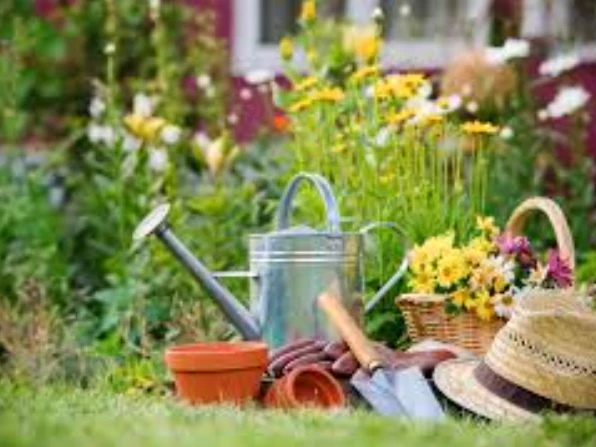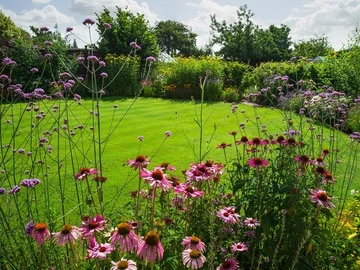As environmental awareness grows, more Zimbabweans are looking for ways to make their gardens not only beautiful but also eco-friendly. Creating a garden that thrives while minimising its impact on the environment is a rewarding endeavour. Here are some little-known tips and tricks to help you make your garden more sustainable and eco-conscious.
1. Utilise Indigenous Plants
One of the simplest ways to make your garden more eco-friendly is to choose indigenous plants. Native species are adapted to Zimbabwe’s climate and soil conditions, making them more resilient and requiring less water and fertiliser compared to non-native plants. Plants such as the Aloe Vera, Impala Lily, and Cape Honeysuckle are excellent choices. They not only support local wildlife but also reduce the need for chemical inputs.
2. Harvest Rainwater
Rainwater harvesting is an effective and eco-friendly practice that conserves water and reduces your reliance on municipal supplies. Install rain barrels or tanks to collect runoff from your roof during rainy seasons. This water can then be used to irrigate your garden during drier periods, helping you save on water bills and reduce your garden’s water footprint.
3. Create a Composting System
Composting is a natural way to recycle organic waste and enrich your soil. Set up a compost bin or pile in a corner of your garden to collect kitchen scraps, garden waste, and other organic materials. Over time, these materials will break down into nutrient-rich compost that can improve soil structure and fertility, reducing the need for chemical fertilisers.
4. Use Mulch Wisely
Mulching is a great way to conserve soil moisture, suppress weeds, and improve soil health. Instead of purchasing commercial mulch, use organic materials like grass clippings, leaves, or wood chips from your own garden. This reduces waste and provides a natural, effective way to maintain healthy soil.
5. Plant a Pollinator Garden
Support local biodiversity by planting a garden that attracts pollinators like bees, butterflies, and birds. Choose flowering plants such as Marigolds, Zinnias, and Sunflowers that provide nectar and pollen. Providing habitats for these beneficial insects can help increase the health of your garden and support the broader ecosystem.
6. Practice Companion Planting
Companion planting involves growing certain plants together to enhance their growth and protect them from pests. For instance, planting marigolds among your vegetables can deter harmful insects, while beans can enrich the soil with nitrogen, benefiting neighbouring plants. This natural method reduces the need for chemical pesticides and fertilisers.
7. Build a Wildlife Habitat
Encourage wildlife to visit your garden by creating diverse habitats. Install bird feeders, bat houses, and insect hotels to provide shelter and food for various species. A pond or a small water feature can also attract beneficial wildlife and support a healthy ecosystem.
8. Choose Eco-Friendly Pest Control
Instead of using chemical pesticides, explore natural pest control methods. Introduce beneficial insects such as ladybugs or lacewings, which prey on harmful pests. You can also use homemade remedies like garlic sprays or neem oil to manage pests safely and sustainably.
9. Implement Xeriscaping Techniques
Xeriscaping is a landscaping method that reduces or eliminates the need for supplemental water. Incorporate drought-tolerant plants, group plants with similar water needs, and use ground covers to reduce evaporation. This technique is particularly useful in areas with limited water resources.
10. Repurpose and Recycle
Give new life to old materials by repurposing them for garden use. Convert wooden pallets into planters, use old tires as garden beds, or turn broken pots into unique garden decorations. Recycling and repurposing not only reduces waste but also adds a creative touch to your garden.
11. Monitor Soil Health
Healthy soil is the foundation of a thriving garden. Regularly test your soil to understand its nutrient levels and pH balance. Amend the soil with natural compost and organic matter to maintain its health and reduce the need for synthetic soil amendments.
12. Opt for Solar-Powered Garden Lights
Switch to solar-powered garden lights to illuminate your outdoor spaces without increasing your energy consumption. Solar lights charge during the day and provide illumination at night, reducing your garden’s overall energy footprint.
By incorporating these eco-friendly practices into your gardening routine, you can create a beautiful and sustainable outdoor space that benefits both your family and the environment. As Zimbabwe continues to face environmental challenges, every small step towards sustainability counts. Embrace these tips to make a positive impact and enjoy a thriving, green garden.
 Continue with Facebook
Continue with Facebook
 Continue with Email
Continue with Email














